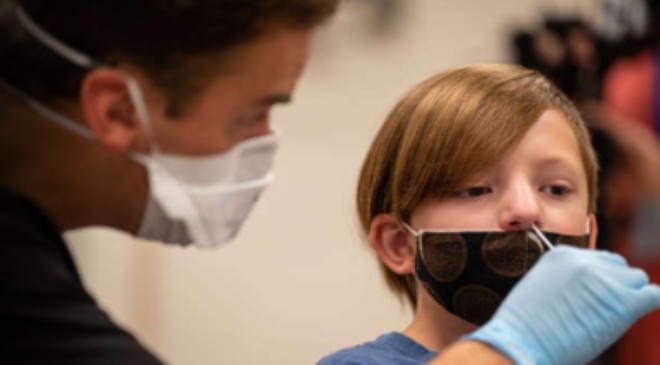Kids who have contracted COVID-19 are more likely to be diagnosed with diabetes, but the Centers for Disease Control and Prevention (CDC) isn’t entirely sure why.
A new study from the CDC found kids who had COVID-19 were up to 2.5 times more likely to be diagnosed with diabetes than their peers who didn’t have COVID-19. The CDC is unsure if the diagnosis is transient or chronic or what’s fueling the increase in diagnosis, but the agency says the increased risk highlights the importance of protecting children from contracting COVID-19.
A percentage of the cases likely occurred in children with prediabetes, a condition that impacts one in five children in the United States. It’s also possible children gained weight during the pandemic, putting them at a greater risk of being diagnosed with diabetes.
The CDC also believes it’s possible a COVID-19 infection increases a child’s risk of being diagnosed with diabetes because the virus can attack pancreatic cells. A fourth hypothesis is that steroid treatments in hospitalized children could lead to transient hyperglycemia. However, the majority of cases studied were coded for type 1 or type 2 diabetes diagnosis.
Although the CDC cites the study as a way of highlighting the need to take measures to help prevent a child from contracting COVID-19, the agency noted further studies are needed. Additional research will help identify whether the infection or treatments cause diabetes and whether it’s transient or something a child will deal with their entire life.
Read More : How do I know if I have a cold, the flu or COVID-19?
The CDC’s study also didn’t address any disparities in race or ethnicity and encouraged future studies to take that into account. To help identify the connection between COVID-19 and diabetes, the CDC urged health care providers to screen for diabetes in people under 18 who were infected with COVID-19.
The study created cohorts from two medical claims databases, which comes with certain limitations. It couldn’t reliably differentiate between type 1 and type 2 diabetes and patients may have been misclassified as not having COVID-19 even though they did. The study also didn’t take into account children with COVID-19 who don’t have commercial health insurance or don’t seek care.
Despite being unsure of what exactly the connection between COVID-19 and diabetes is, the CDC urged health care providers to monitor adolescent COVID-19 patients in the months following their infection. This could lead to the discovery of new diabetes onset.
Newsweek reached out to the Centers for Disease Control and Prevention (CDC) for comment but did not receive a response in time for publication.







































